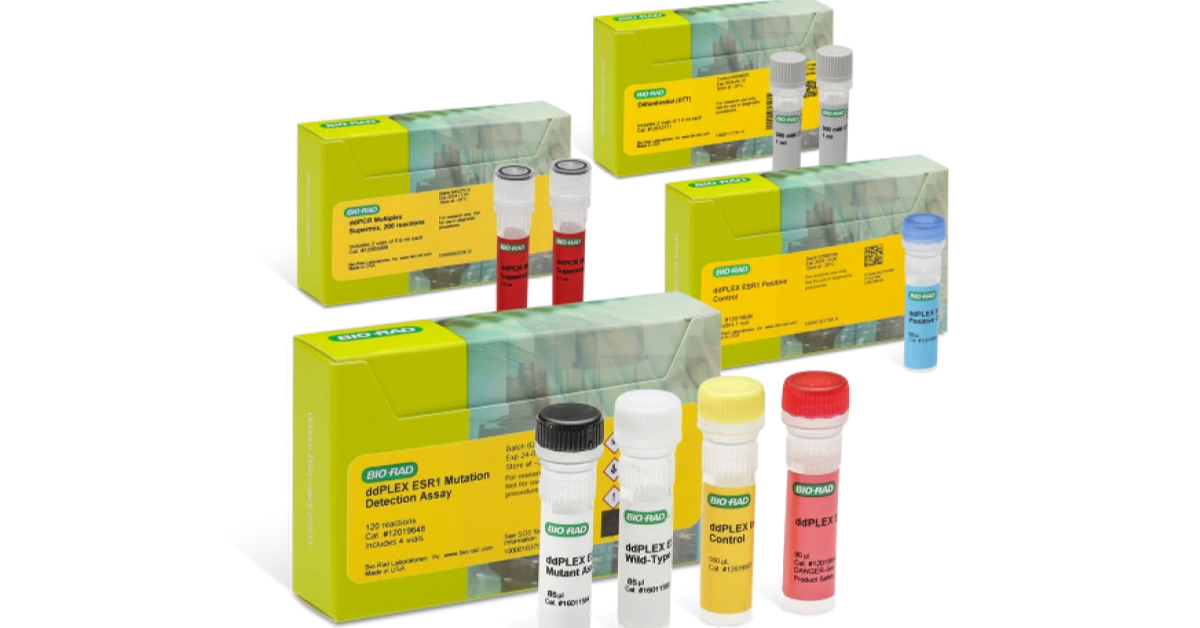
USA – Bio-Rad Laboratories, a global leader in life science research and clinical diagnostics products has launched its first ultrasensitive multiplexed digital PCR assay, the ddPlex ESR1 Mutation Detection Kit.
This innovative tool is specifically designed to support translational research, aid in therapy selection, and monitor disease progression in breast cancer patients.
Utilizing the Bio-Rad QX600 Droplet Digital PCR System, the kit allows researchers to detect and quantify seven significant mutations in the ESR1 gene, which is crucial for understanding estrogen receptor-positive breast cancers.
The ddPlex ESR1 Mutation Detection Kit stands out for its remarkable sensitivity and efficiency.
It offers simultaneous detection and quantification of seven relevant ESR1 mutations—E380Q, S463P, L536R, Y537C, Y537S, Y537N, and D538G—in a single well, achieving an analytical sensitivity of 0.01% variant allele fraction (VAF).
Stephen Kulisch, Vice President of Marketing for Bio-Rad’s Digital Biology Group, remarked, “With the ddPlex ESR1 Mutation Detection Kit, our customers can achieve new levels of sensitivity and multiplexing without compromising throughput.
“This launch reflects our ongoing menu expansion in oncology and our commitment to providing oncology researchers with technologies that enable everything from biomarker discovery to clinical trials that support improvements in patient monitoring.”
The kit is equipped with controls and can produce same-day results using circulating tumor DNA (ctDNA) from plasma or DNA from formalin-fixed paraffin-embedded (FFPE) tissue samples.
This rapid turnaround is critical in clinical settings where timely decisions can significantly impact patient outcomes.
Importance of ESR1 testing in breast cancer treatment
The ESR1 gene is responsible for encoding the estrogen receptor subtype alpha, and mutations in this gene are increasingly recognized for their role in breast cancer progression and resistance to therapy.
The ddPlex ESR1 Mutation Detection Kit quantitatively interrogates key variants across three exons, facilitating better treatment strategies.
Recent clinical trials, including the PADA-1 study, have highlighted the importance of regular ESR1 mutation testing.
This randomized, multi-center trial is evaluating the outcomes of switching patients with ESR1 mutations from aromatase inhibitors to fulvestrant, a therapy known for its effectiveness against certain ESR1 mutations.
Interim results show that early intervention—when mutations are detected promptly—can lead to significant improvements in median progression-free survival.
XRP HEALTHCARE L.L.C | License Number: 2312867.01 | Dubai | © Copyright 2025 | All Rights Reserved